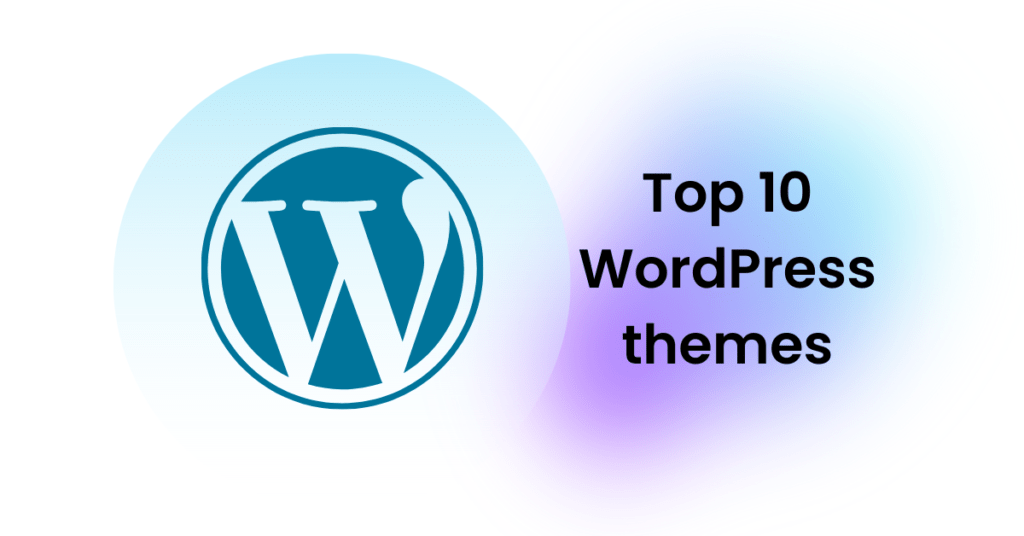When starting a blog, one of the most important decisions is choosing the right platform. Blogger and WordPress are two of the most popular options, each with its own strengths and weaknesses. This guide provides a detailed comparison of Blogger vs. WordPress to help you make an informed choice.
1. Overview
Blogger
Blogger is a free blogging platform owned by Google. It provides a simple way to start a blog without technical knowledge. It is best suited for hobby bloggers and beginners who want a hassle-free experience.
WordPress
WordPress comes in two versions: WordPress.com (hosted) and WordPress.org (self-hosted). WordPress.org is the most powerful blogging and website-building platform, offering complete control, customization, and scalability.
2. Ease of Use
Blogger
- Very beginner-friendly with a straightforward setup.
- No need to install software or manage hosting.
- Limited customization options, making it less flexible for advanced users.
WordPress
- WordPress.com is easy to use but offers limited customization.
- WordPress.org requires domain and hosting setup but provides unlimited customization.
- Learning curve is steeper than Blogger but offers more powerful features.
3. Ownership & Control
Blogger
- Owned and controlled by Google.
- Google can suspend or shut down your blog at any time.
- Limited access to advanced settings and customization.
WordPress
- WordPress.org gives you complete ownership and control.
- You can customize, modify, and monetize your site freely.
- No risk of shutdown as long as you follow hosting terms.
4. Customization & Themes
Blogger
- Limited selection of free themes.
- Customization is minimal, with basic design tweaks available.
- Lacks support for advanced page builders and custom layouts.
WordPress
- Thousands of free and premium themes available.
- Full customization with page builders like Elementor, Divi, and WPBakery.
- Ability to add custom code, widgets, and plugins for advanced functionality.
5. Plugins & Features
Blogger
- No plugin support; only built-in features are available.
- Limited third-party integrations.
- Basic blogging tools such as comments, analytics, and SEO settings.
WordPress
- Over 50,000 plugins available to extend functionality.
- Can integrate with eCommerce, SEO tools, email marketing, and more.
- Allows custom scripts and advanced integrations for developers.
6. SEO & Performance
Blogger
- Basic SEO features available but limited.
- Google-hosted, so fast loading times but limited optimization control.
- Limited ability to add SEO plugins or optimize for advanced search rankings.
WordPress
- Advanced SEO plugins like Yoast SEO and Rank Math for better optimization.
- Full control over site speed optimization with caching and CDN tools.
- More flexible structure for better indexing and ranking.
7. Monetization Options
Blogger
- Allows Google AdSense integration.
- Limited options for other monetization methods.
- No support for advanced eCommerce or membership sites.
WordPress
- Multiple monetization options, including Google AdSense, affiliate marketing, sponsored posts, and selling digital products.
- Supports full eCommerce functionality with WooCommerce.
- Ability to create membership sites, online courses, and premium content areas.
8. Security & Maintenance
Blogger
- Hosted and managed by Google, so security is robust.
- No need for manual updates or backups.
- Limited control over security settings.
WordPress
- Security depends on the hosting provider and user precautions.
- Regular updates and maintenance required.
- Security plugins like Wordfence and Sucuri can enhance protection.
9. Pricing & Cost
Blogger
- 100% free, including hosting and SSL.
- Custom domain requires additional payment (~$10–$15 per year).
- No hidden costs, but limited features compared to WordPress.
WordPress
- WordPress.org is free, but hosting costs start at ~$3–$10 per month.
- Premium themes, plugins, and custom development can add costs.
- More flexibility in choosing a budget that fits your needs.
10. Best For?
Choose Blogger If:
✔️ You want a simple, free blog for personal use. ✔️ You don’t need advanced features or customizations. ✔️ You prefer a hands-off approach with minimal maintenance.
Choose WordPress If:
✔️ You want full control and customization of your website. ✔️ You plan to grow and monetize your blog. ✔️ You need professional features, SEO, and scalability.
Final Verdict
| Feature | Blogger | WordPress.org |
|---|---|---|
| Ease of Use | ⭐⭐⭐⭐ | ⭐⭐⭐ |
| Customization | ⭐⭐ | ⭐⭐⭐⭐⭐ |
| Ownership | ⭐⭐ | ⭐⭐⭐⭐⭐ |
| SEO | ⭐⭐ | ⭐⭐⭐⭐⭐ |
| Monetization | ⭐⭐ | ⭐⭐⭐⭐⭐ |
| Security | ⭐⭐⭐⭐⭐ | ⭐⭐⭐ |
| Cost | ⭐⭐⭐⭐⭐ | ⭐⭐⭐ |
If you’re serious about blogging and want full control over your website, WordPress.org is the better option. However, if you’re looking for a free, easy-to-use platform with minimal maintenance, Blogger is a great choice.
Frequently Asked Questions (FAQs)
1. Can I move from Blogger to WordPress later? Yes, you can migrate your blog from Blogger to WordPress without losing content. Many guides and plugins are available to help with this transition.
2. Which is better for making money? WordPress offers more ways to monetize, including eCommerce, ads, and affiliate marketing. Blogger mainly supports AdSense but has fewer revenue options.
3. Do I need coding skills for WordPress? No, but having basic knowledge helps. WordPress is user-friendly, and page builders make customization easy without coding.
4. Is WordPress secure? Yes, but it requires regular updates and security measures. Using secure hosting, plugins, and best practices keeps your site safe.
5. Which is better for SEO? WordPress has superior SEO features and plugins like Yoast SEO, making it the best choice for long-term growth and ranking.
Let me know if you want any additional details or comparisons! 🚀

